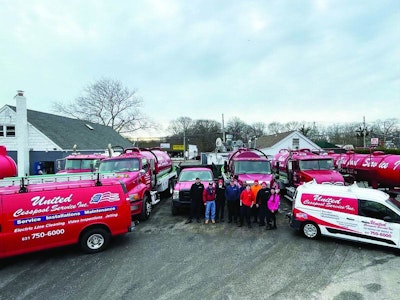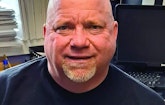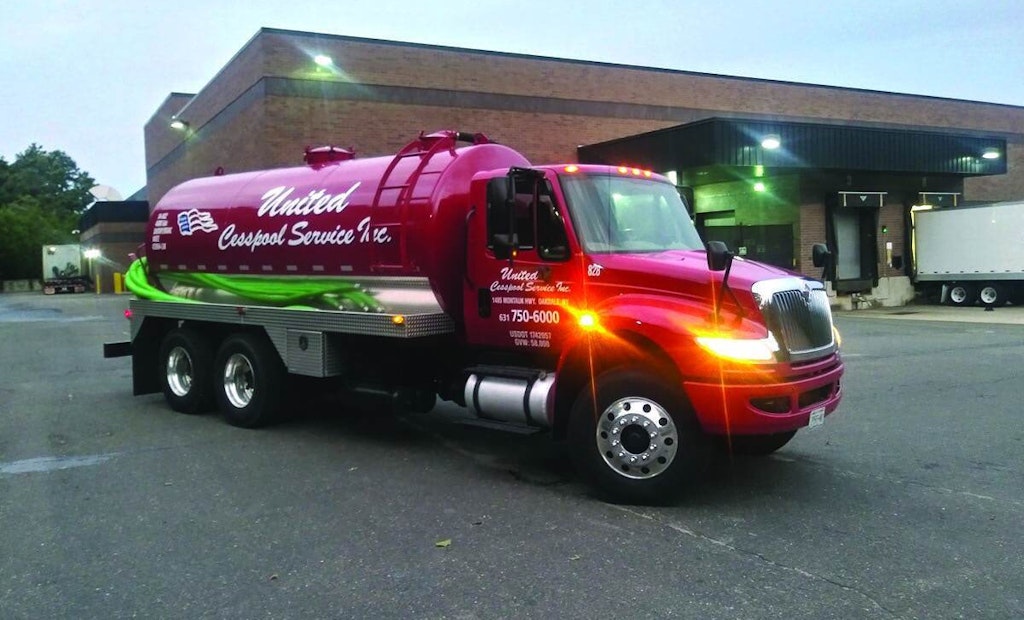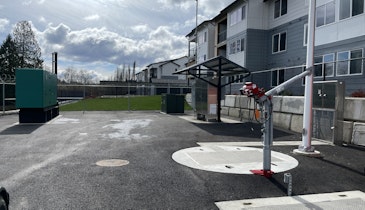Interested in Business?
Get Business articles, news and videos right in your inbox! Sign up now.
Business + Get AlertsIn Snapshot, we talk to a member of a state, provincial or national trade association in the decentralized wastewater industry. This time we visit a member of the Long Island Liquid Waste Association.
Name and title or job description: Robert McInerney, partner
Business name and location: United Cesspool Service Inc., Oakdale, New York
Services we offer: Sanitary/septic system pumping, grease trap cleaning and maintenance, and stormwater pumping and system rehabilitation.
Age: 57
Years in the industry: 39
Association involvement: I have been peripherally involved in the Long Island Liquid Waste Association my entire career. I have been an active member of our board of directors for the past two years and was recently elected president.
Benefits of belonging to the association: It keeps us abreast of code and regulation changes affecting our industry at the local level, as well as things happening at the state and national levels. We have formed some great relationships with other members and owe a lot of our success to these relationships. It’s a great way to meet people on the leading edge of our industry here on Long Island. And the discussions we have are a great source of information, knowledge, and perspective we can apply to our everyday business operations.
Biggest issue facing your association right now: People always say it’s the changing regulations that have the biggest impact on our industry. But from my perspective the biggest challenge is that we are not attracting enough young talent. There are very few 20-somethings that wake up and say, “I want to be in the septic business.” People underestimate the amount of technology involved in this business. Thirty years ago it was a guy with a vacuum truck and a hose, and now there is so much technology in the new innovative and alternative systems and wastewater plant operations that the opportunities are endless if someone is willing to put in the work.
Our crew includes: We have a great crew. We work hard and have fun doing it. Lisa McInerney — the best wife in the world — is responsible for all paperwork and really keeps the place running, Mike Stallone, business partner, runs the sewer and drain techs. Bob McInerney Jr., field service technician, catches all the loose ends for the entire crew and is in charge of maintaining inventories for parts, supplies and equipment. Rick Keller is a vacuum truck operator and bulk hauling specialist. Shawn Gaul is a vacuum truck operator and our resident expert in “hillbilly engineering.” Jimmy Canton is a vacuum truck operator and our goodwill ambassador, always in a good mood and willing to help out a co-worker or customer. Jonathan Curtis, roto tech, has never met a line he couldn’t clear. John Rogers, roto tech, brings a ton of talent and skills from other life experiences. Carl Marshall, weekend service tech, really picks up the slack to give our weekday techs a much-needed break.
Typical day on the job: I am usually in the office by 5 a.m. I make any adjustments to the schedule that may have occurred the night before. Our crew usually starts at 6 a.m. and I dispatch them to their first jobs. Then I go out in a truck and do a load or two just to take a little pressure off of the day. I try to get back to the shop by 1 p.m. and then answer calls and emails, do estimates and other paperwork until about 5 p.m.
The job I’ll never forget: We were once called in to figure out why a septic system was filling up at a rate of 10,000 gpd when it should have used 1,000 gpd. After pumping for a few days, we were able to figure out that a contractor brought in by the landlord had accidently tied a branch of fire mains into the sanitary drainline and it was running constantly. Needless to say, they had to bring in a new fire contractor to make the repairs and we got paid to pump a whole bunch of clean water and haul it to the disposal facility.
My favorite piece of equipment: My cellphone. It allows us to stay in constant contact with our techs during the day, especially as things change and emergencies come up. We can send them customer information and any special info they may need. It also lets us send real-time photos to our customers about how their systems are performing or alert them to any problems we see. I don’t know how we ever did business without them. A picture really is worth 1,000 words.
Most challenging site I’ve worked on: There was a time we had to pump some injection wells that were over 40 feet deep. We purchased an airlift that we put inline and attached to our portable air compressor. I was skeptical at first, but it really did the trick and helped keep the project moving and on schedule.
Oops, I wish I could take this one back: I don’t really have any big regrets about a project but I do have some regrets about the amount of repair dollars we have put into some equipment before finally concluding we are just throwing money away.
The craziest question I’ve been asked by a customer: If my septic tank is clogged with disposable wipes, can you just pump out the wipes and leave the rest of the tank alone?
If I could change one industry regulation, it would be: It would be great if we were able to mandate membership in our association as a condition of being granted a liquid waste haulers license. It would get more people involved and would help people see the opportunities available to them. Also, the increase in membership dues would allow the association to continue to serve our industry to the fullest.
Best piece of small business advice I’ve heard: When I first started in this industry I was just a kid. I worked for RGM Liquid Waste Removal (Ralph Macchio). He was tough but fair. He would always say, “If you don’t inspect, you won’t get any respect.” He showed me it was important to catch people doing something right. That taught me the value of taking care of your people. No one can do this job alone, and without great people you cannot be successful. Our motto is, “Be nice, it doesn’t cost any money.” We try to treat our customers, co-workers and the people we meet during the day nicely, and it seems to be working. When we do any job, big or small, we always do it right. If you do things right and treat people fairly the money seems to take care of itself.
If I wasn’t working in the wastewater industry, I would: I would have liked to have tried my hand at being a teacher — and the schedule seems pretty great. But I tell people all the time this is the only thing I am good at.
Crystal ball time – This is my outlook for the wastewater industry: This is a growing and ever-changing industry and technology is making it a very professional one. It is a grind. The hours are long and some days are absolutely miserable, but when you look back, some of those miserable days are also the most rewarding because they helped you learn something new or taught you how to look at a problem from a different angle. There is so much potential to succeed in this industry, and as regulations get tighter that only increases the opportunities for success. But we need to attract younger people that can see there is potential to provide a good living for their families.









